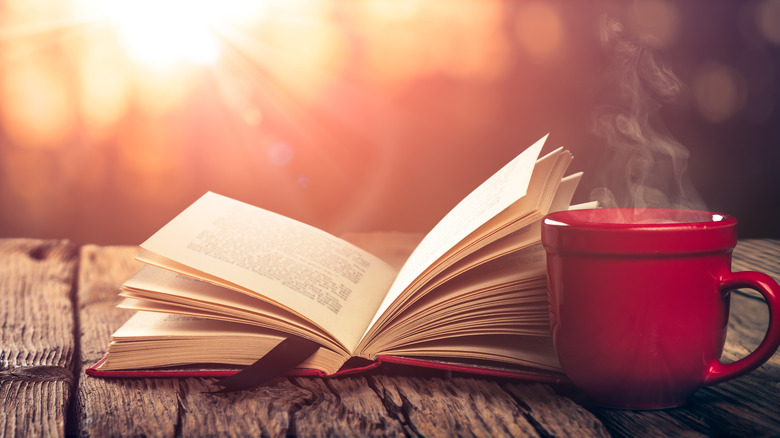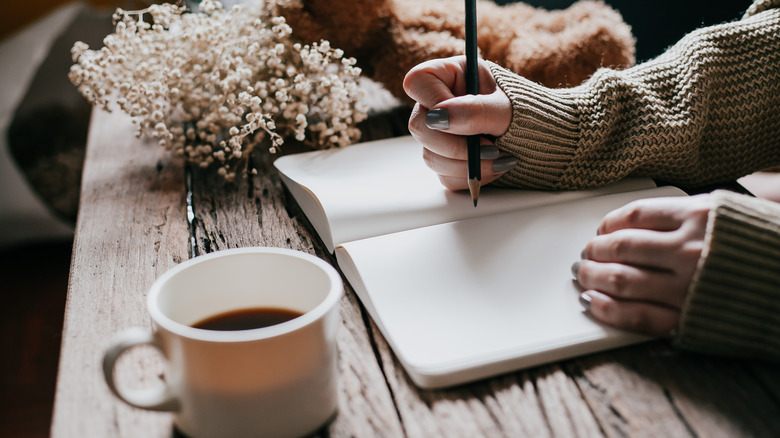The Artist's Way: The Creative Routine That Could Help You Overcome Self-Doubt
We live in a culture that celebrates great artists to the point of elevating them to celebrities, yet wholly discourages people from pursuing art as a career path, warning us that we will end up "starving artists" and should instead get a "real job." As such, those of us with artistic callings often find ourselves confused. If we attend college and tell someone we wish to major in art, creative writing, dance, etc., we will often be scolded for "wasting our money and education" on something that will not foster a "real" career.
But if every budding artist listened to the naysayers, we would have no movies, no music, no novels, no comic books, no video games, no fashion, no Broadway productions, and no museums filled with sculpture and painting. Art is culture. Art is how we as human beings find self expression, either through creating art ourselves or through relating to and displaying the art of others (via our home decor, the clothes we wear, the music we listen to, etc.).
So if you are artistically-inclined, but are struggling with imposter syndrome (thoughts that tell you that you and your art aren't good enough to "make it" or a voice in your head that says, "who am I to make art?"), there is a routine aimed at helping you tap into your creativity so that both your art and your soul can thrive.
The Artist's Way
In 1992, American author Julia Cameron published a book entitled "The Author's Way," a self-help book of sorts for those with a creative spirit. Since its release, the book has sold over 4 million copies, and famous artists like author Elizabeth Gilbert swear by the philosophy the book presents. In fact, Gilbert has said that her runaway hit book "Eat Pray Love" would not exist if it weren't for the fact that she read "The Author's Way" and adopted the philosophy and routine that Cameron's book suggests (via The New York Times).
The book itself takes its readers on a twelve-week journey toward healing and freeing the artist within ourselves with detailed tips and tricks on what to do and what to focus on each week. Elizabeth Gilbert says she as completed the twelve-week plan three separate times, each time succeeding in bringing her creative goals to life. There is a spiritual element to the book a well, which suggests that by tapping into our innate creativity, we are also tapping into something higher and bigger than ourselves.
Whether or not you wish to read the book and whether or not you buy into the spiritual element of creativity, there are some tips and habits you might be able to incorporate into your life in order to get your creativity flowing.
Morning pages
One routine that Julia Cameron, author of "The Artist's Way" would encourage us all to incorporate into our daily lives is to keep "morning pages." Some of us are morning people and some of us are not. Cameron herself admits to being "grumpy" when she first wakes up, but even so, she religiously keeps to her routine of writing her morning pages (via the New York Times).
Essentially, the idea is to just let your stream-of-consciousness control the pen, and to try and write up to three pages each morning upon waking. These pages are meant to be completed using "automatic writing," meaning writing without letting your planning/judging mind interrupt the flow of what simply comes to you, through you, into the pen, and onto the page. This is different from standard journaling in that often when journaling, you tend to want to make your thoughts linear and have them tell a story, whether about the day you're planning, the dream you had last night, etc.
Instead, these morning pages are aimed at opening the floodgates first thing in the morning, tapping into that higher creative self without purpose or judgement or planning, thereby heightening your ability to tap into that creativity all day long. While this is of course great for writers, it is meant to help all creatives, no matter the medium they choose, as it is about letting your creative energy simply flow, releasing blocks and self-doubt.


